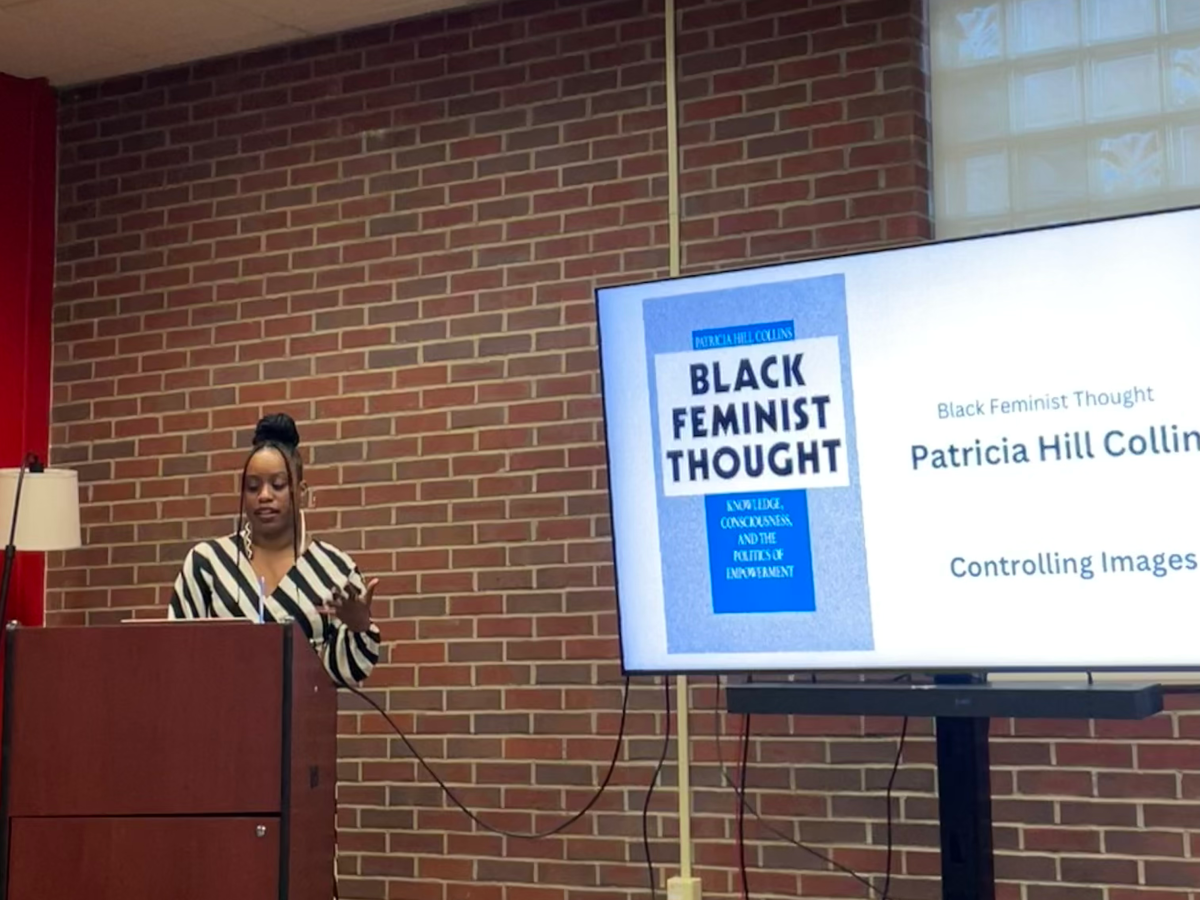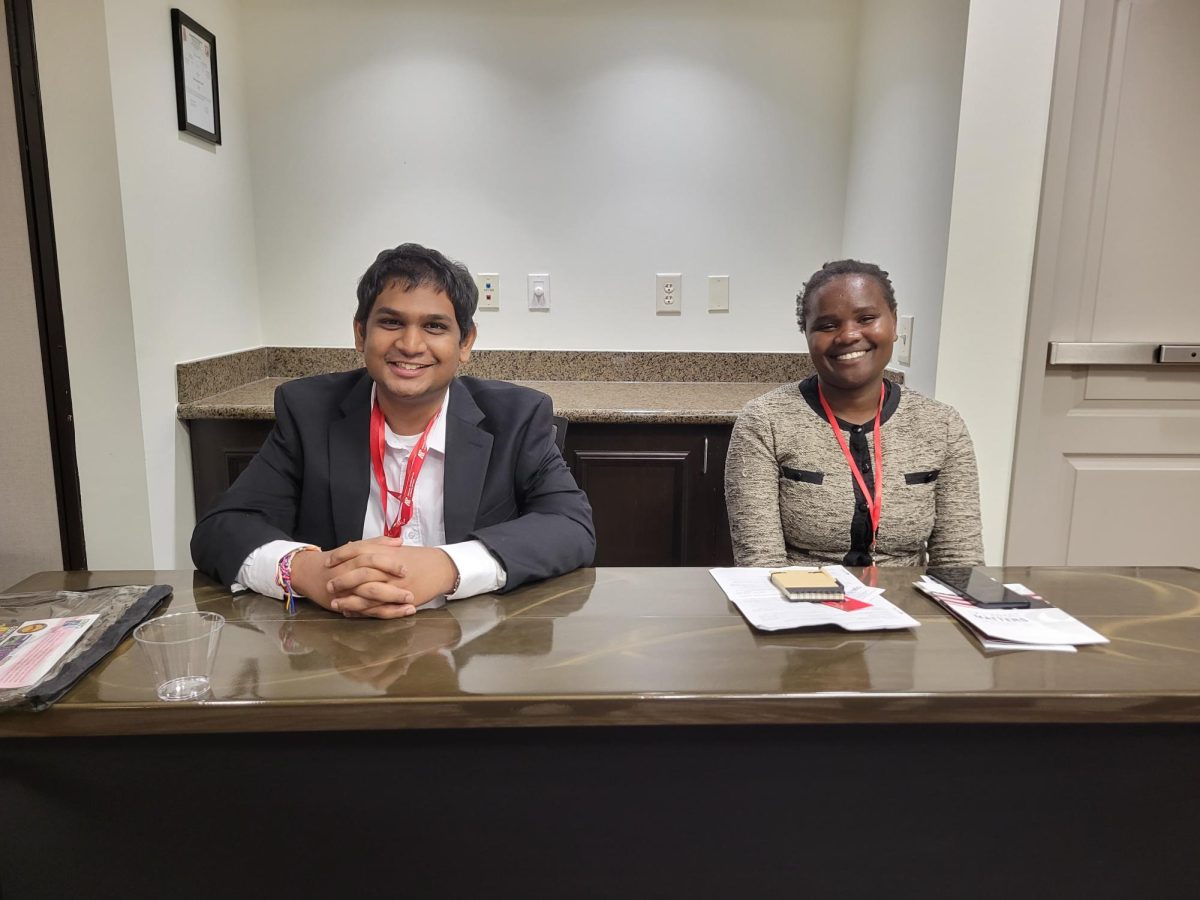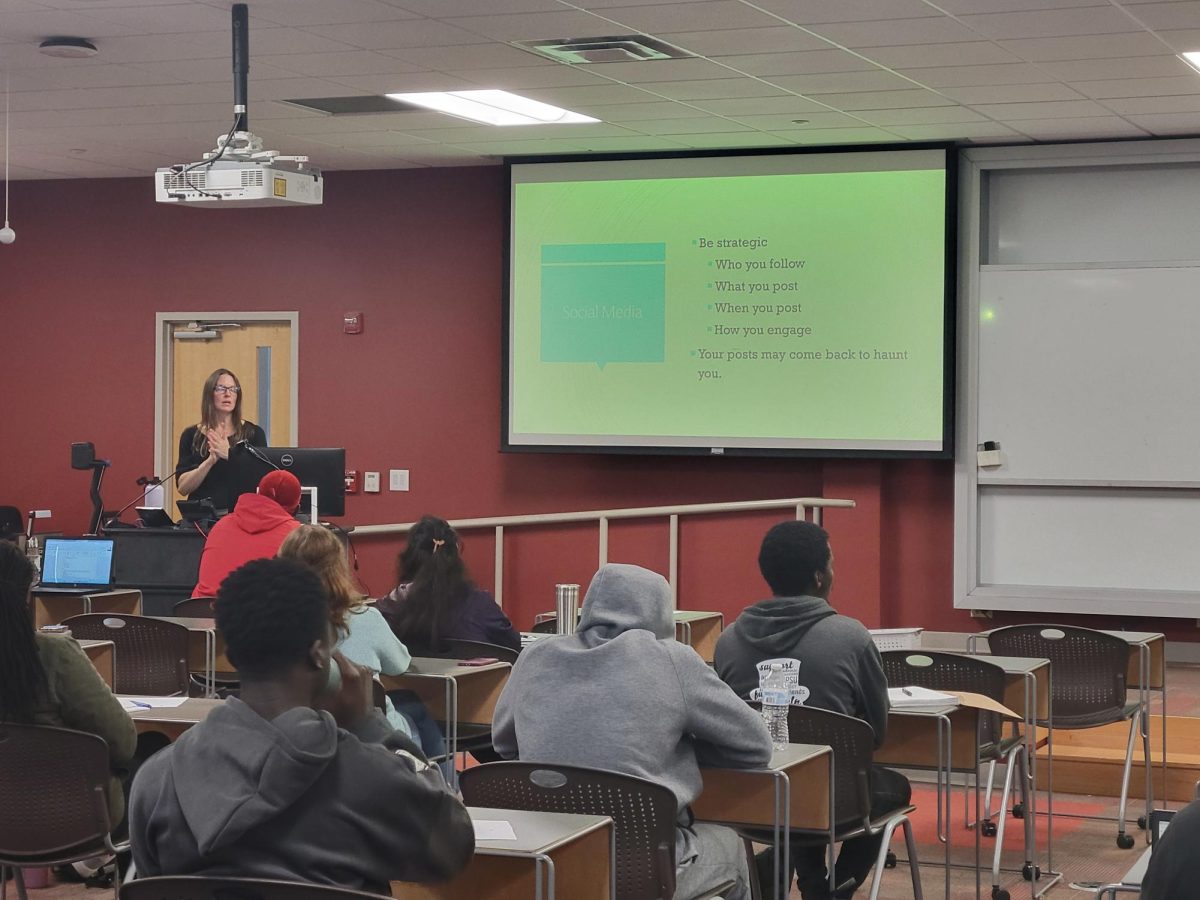APSU Professor Eboné Amos gave a talk on stereotypes surrounding Black women on Feb. 20, 2024. Photo by Elaina Ellis | THE ALL STATE
This year, Black History Month was one day longer, and the students and faculty at Austin Peay State University filled those days with celebration and education for the Black community.
One of these celebrations happened on February 20th, 2024 in the Honors Commons. Professor Eboné Amos, a professor at APSU’s department of Theater and Dance, as well as its African American studies program, was invited by the APSU Honors and PELP’s diversity, equity and inclusion committee to give a presentation.
Professor Amos’ presentation broke down the harmful stereotypes of Black women that are mostly seen in the media, which bleed into harm for Black women. Three stereotypes were analyzed: the Mammy, the Jezebel and the Sapphire.
Amos stated that the Mammy stereotype represents the belief that Black women are meant to work, mostly as a mother and a slave, and that it perpetuates the racist idea that they only exist to serve their white master, as that this is what brings them joy.
She then discussed the consequences of this in the present day with the audience, and the consensus was reached that it places pressure on modern Black women to be responsible for everyone.
The second image Professor Amos broke down was the Jezebel lie. She explained that it is the idea have that Black women are sexual objects that have an abnormally high libido, therefore their purpose is to produce more children for their master, and that their constant state of motherhood makes them perpetual wet nurses for their master’s children.
According to Amos, the modern effect of this lie leads to the idea that the current image of Black women is that of a sexual object that cannot love, and that it can lead to sexual assault against them.
The third construct broken down was the Sapphire image. Professor Amos described it as the stereotype of the Black woman that is always picking fights with everyone. She emasculates those around her, and therefore cannot be feminine.
Amos’ presentation was structured under the book Black Feminist Thought by Patricia Hill Collins. When asked why she put this together, she responded, “I am black, and I am a woman.”
She wanted to help people realize their subconscious prejudices, and to promote critical thinking over the images people have of each other.
She wants people to realize that they, and others, do not have to be who others think they are supposed to be.
She mentioned that she did not know these things about racism until she was in college, so she wanted to give others this information so that it can make life a little better for everyone.
The main message Amos said that she wanted people to walk away with was to stop making assumptions about each other. She wants people to take the time to get to know each other better, and to think critically in order to break past the categories people place each other in.
Ella Holland, from the Honors and PELP Diversity, Equity and Inclusion committee, said that the committee invited Professor Amos to give this presentation because they wanted to shed light on this topic during Black History Month.
Holland said when they were researching who to invite, they reached out to her because they knew that she was qualified to bring something new and important to the table.
Holland sais that they plan to invite more speakers to present over Black history and the Black experience throughout the year. Even though this year’s Black History Month was one day longer than normal, they do not want to stop after February.







